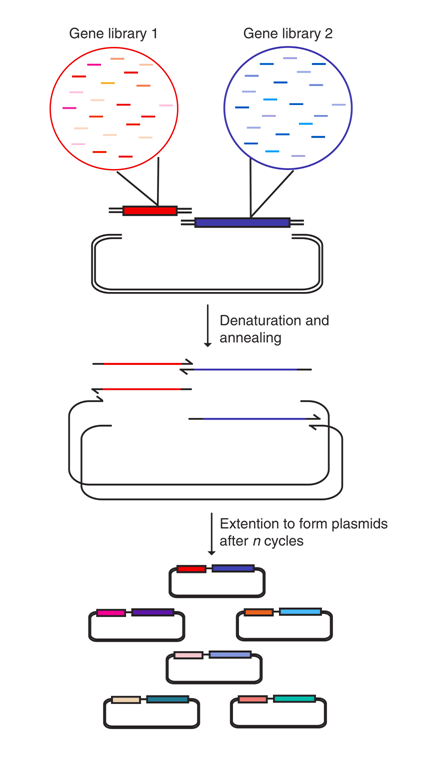Circular polymerase extension cloning for high-throughput cloning of complex and combinatorial DNA libraries
The research team “Synthetic Genomics”, led by Prof. TIAN Jingdong, has developed a protocol for a sequence-independent approach for cloning complex individual or combinatorial DNA libraries and routine or high-throughput cloning of single or multiple DNA fragments. The corresponding paper was published in Nature-Protocol. (http://www.nature.com/nprot/journal/v6/n2/full/nprot.2010.181.html)
High-throughput genomics, proteomics and synthetic biology studies require ever more efficient and economical strategies to clone complex DNA libraries or variants of biological modules. In this work, TIAN’s group provided a strategy called circular polymerase extension cloning (CPEC), which is based on polymerase overlap extension and is therefore free of restriction digestion, ligation or single-stranded homologous recombination. CPEC is highly efficient, accurate and user friendly. Once the inserts and the linear vector have been prepared, the CPEC reaction can be completed in 10 min to 3 h, depending on the complexity of the gene libraries.

Fig. Schematic diagram of CPEC cloning of combinatorial gene libraries. Two gene libraries are cloned in frame into a vector. The vector and the inserts share overlapping regions at the ends. In each CPEC cycle, after denaturation and annealing, the hybridized inserts and vector extend using each other as a template until they complete a full circle. The assembled plasmid library can be directly used for transformation into competent cells. (by Prof. TIAN’s group)
